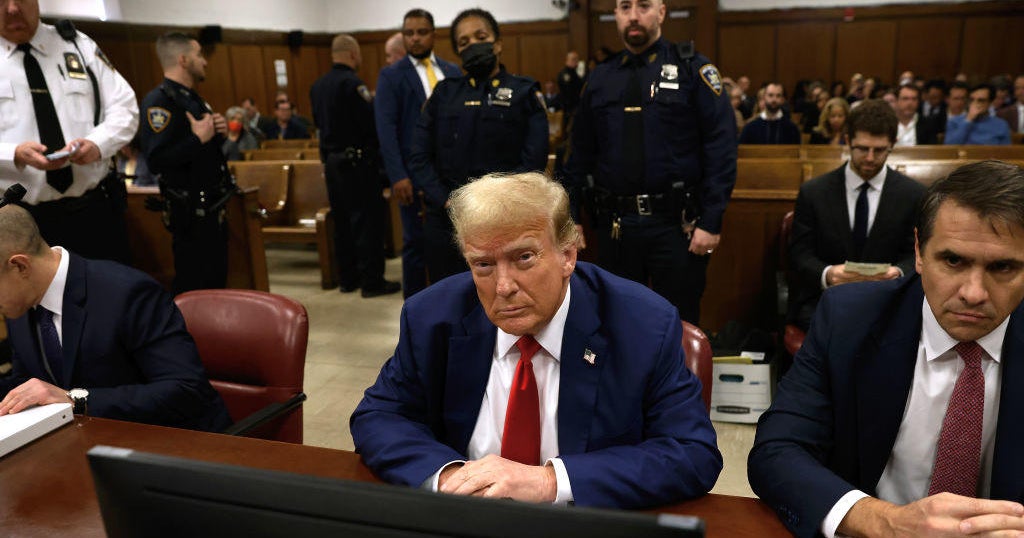Rapid escalations in Myanmar’s civil war are creating a rare opening for potential cooperation between the U.S. and China, with the chaos and violence in Southeast Asia posing a threat to both countries’ interests overseas.
While Washington and Beijing are making an effort to improve relations with each other, any common ground on Myanmar must still overcome deep mistrust and suspicion.
“The Chinese are fundamentally suspicious about what the U.S. agenda is,” said Yun Sun, nonresident fellow with the John L. Thornton China Center at Brookings Institution.
“But I think for the two great powers to at least have a conversation about where they think that the country is going, whether the violence will continue to escalate, that it will get worse, which is in no one’s interest, is necessary.”
A senior administration official said that discussions around Myanmar, also called Burma, were included on the agenda for Secretary of State Antony Blinken’s three-day visit to China, taking place between April 24 and 26.
That’s a positive signal for regional experts, watching with alarm the country’s descent toward a failed state. A coalition of rebel groups fighting Myanmar’s military dictatorship have made shocking territorial gains in recent weeks. There’s no clear path to organized governance.
“The U.S. and China are in a pretty — sweet spot might be overstating it — but they’re in a stabilization mode,” said Yun.
“I do think there’s an effort to find the thing that they can work on or at least find something that they can avoid conflicts or avoid further deterioration of relations, and Myanmar is one of those issues.”
China holds massive influence in Myanmar, a border country in which Beijing has provided diplomatic cover for the junta since it took over in a military coup in February 2021.
The U.S. at that time condemned the military’s jailing of the country’s democratic leader, Aung San Suu Kyi, and responded with sanctions in the wake of military leaders carrying out violence and terror against peaceful protesters.
“The Chinese have leverage, but they’re not willing to use it, because although China wants stability, China does not want to throw out the junta. So that is the fundamental difference between the U.S. and China,” Yun said.
Experts say there’s much more that separates China and the U.S. on Myanmar than brings them together, but that Myanmar’s bleak trajectory is making conversations, and potential cooperation, feel increasingly urgent.
“We have a shared interest in trying to reduce the level of violence in Southeast Asia, and the level of violence in Myanmar in particular,” a senior administration official told reporters last week, ahead of Blinken’s departure for the region.
“I would anticipate the secretary will be prepared to lay out what our policy is, to lay out the areas where we think we have a shared interest, and to see if at a minimum we can ensure that we’re not working at cross purposes or if perhaps there is a way that we could together contribute to those shared goals in Burma.”
On the ground in Myanmar, which borders India, China and Thailand, a wide coalition of rebel Burmese groups are making sweeping military gains against the junta. These disparate armed groups have seized key territory on Myanmar’s borders, putting them in control of billions of dollars of trade, humanitarian deliveries and weapons.
On the ground, the humanitarian situation is desperate. The United Nations reported in April that it expects 18.6 million people in the country will need humanitarian assistance in 2024, a 19-fold increase from February 2021.
Approximately 2.8 million people have been displaced, 90 percent of them since the military takeover. Hunger is on the rise across the country, and there is a risk of malnutrition among children and pregnant women, according to the U.N.
And criminal groups are operating with impunity, running massive cyber scams targeting U.S. and global consumers and carried out on the backs of an estimated 100,000 trafficked persons.
“There’s no state infrastructure, the entire state has collapsed. Men with arms and different groups control different parts of the country,” said Joshua Kurlantzick, senior fellow for Southeast Asia at the Council on Foreign Relations.
“The resistance has gained a lot of ground, and while the military still controls some areas, even there, everything has collapsed. The health system has collapsed, the economy has collapsed … And so part of this has meant that China, which was [the junta’s] diplomatic backer, has definitely become increasingly concerned about all of this chaos.”
While Kurlantzick said there is opportunity for U.S.-China collaboration, it’s a “modest priority” for the Biden administration, and falls far down a long list of issues Blinken is tasked with raising with his Chinese counterparts.
These issues include China’s role in America’s fentanyl crisis; Beijing’s support for Russia’s war in Ukraine; deterring a Chinese invasion of Taiwan; concerns about China’s military buildup; and risks facing American citizens and businesses in China. President Biden’s signature Wednesday on a law that would ban TikTok, unless it separates from its Chinese owners, is likely to be another point of high friction.
“To the extent that there’s cooperation, most of it would have to come from China and to some extent other forces and actors in the region. Some Southeast Asian countries seem to be increasingly believing that the opposition is going to win,” Kurlantzick said.
“I don’t know whether they’re planning contingency policies for that. But the U.S. is pretty occupied, and our avenues of leverage are pretty limited.”
Despite their many areas of contention, Biden and Chinese President Xi Jinping have both committed to opening lines of communication — starting with their meeting in Woodside, Calif., in November, then talking on the phone earlier this month.
The goals of these more frequent phone calls and meetings is twofold: at the very least, avoid an outbreak of conflict, and when possible, seek cooperation on shared interests.
For the Biden administration, one of the key China-related issues ahead of the November election is getting the Chinese government to address the export of precursor chemicals for fentanyl that are fueling the opioid epidemic in the U.S.
Jason Tower, Myanmar country director for the U.S. Institute of Peace, said joint counternarcotics efforts could provide a framework for the U.S. and China to cooperate on combating criminal groups in Myanmar engaged in cyber scams, one avenue that could begin to build trust.
“This is maybe one area where there is a real need, I think, for the U.S. to raise this issue with China and to push just many of the ways that we’ve been pushing on the fentanyl issue — push for the Chinese side to cooperate, share intelligence and to be more constructive in dealing with some of these problems, lest it becomes more and more of a … threat to U.S. national security,” he said.
The U.S. has become the No. 1 target of so-called pig-butchering scams in recent months, where scammers engage in long-term cons, posing as friendly or romantic prospects to victims who are swindled out of large sums of money.
For China, its citizens are increasingly being trafficked, held against their will, tortured, and forced to work in the scam centers. And the criminal gangs are operating on both sides of Myanmar’s civil war.
“China has dramatically increased its involvement in Burma since last September, and the issue that’s triggered much, much deeper Chinese involvement is the presence of largely Chinese crime groups that have been engaging in cross-border scams targeting Chinese nationals using trafficked labor,” Tower added.
The crisis has escalated dramatically in recent weeks, with armed groups putting the junta on the back foot in a surprisingly successful offensive launched in October.
“Levels of instability are much higher,” Tower said. “There’s a good reason why the U.S. would be raising these issues now, both because of the escalation and the weaker position of the military and the very significant shift in China’s role and involvement there.”
Copyright 2024 Nexstar Media Inc. All rights reserved. This material may not be published, broadcast, rewritten, or redistributed.






